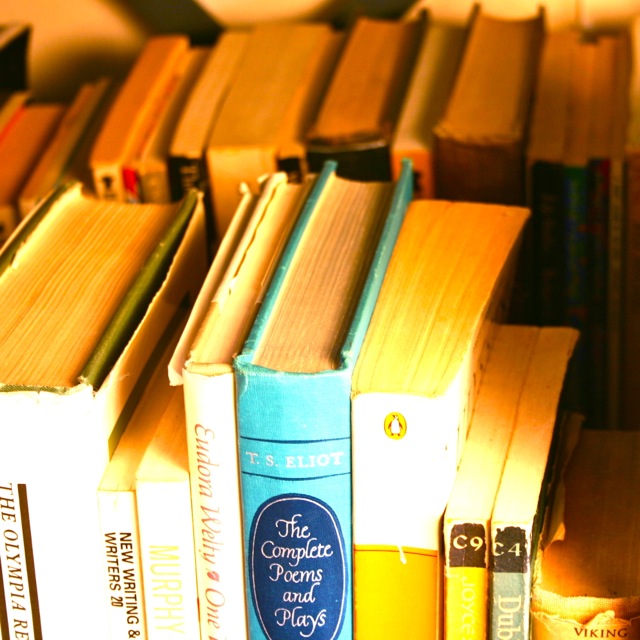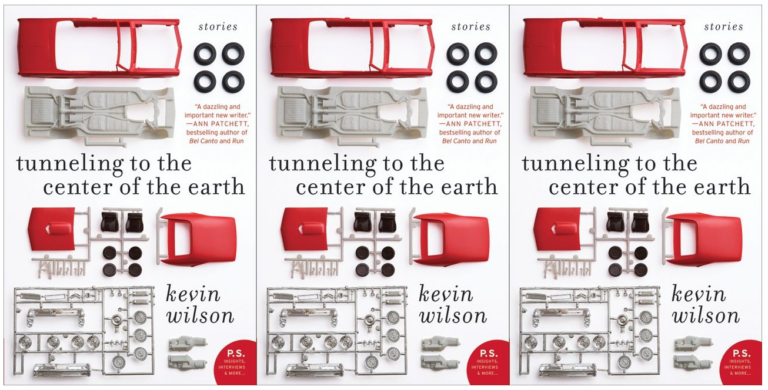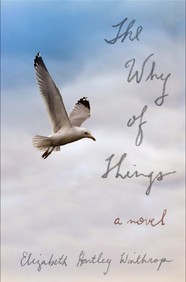STEAL THIS STUFF: What Writers Can Learn from Over the Rhine
Okay Writers. If you’ve been tucked safely away from Great Music over the last two decades, you may be new to the “aggressively beautiful” music of Over the Rhine.
Today, the husband/wife duo Linford Detweiler and Karin Bergquist are invading my column, not just because they’re critically acclaimed songwriters—but because, with lyrics that threaten to cross over into literature (I KNOW), they’re fitting guides for any writer.
And perhaps more significantly: after 20 years and too many albums to count, they’re still crafting, experimenting, and connecting. In fact, tomorrow (Sept 3) they’re releasing a new double-album—as in, too many songs for one record.
Nice problem. (PS. Listen while you read: Stream the new record online.)
Hark, writers of all stripes: This guy knows his craft. Steal his wisdom.
And OtR fans old and new: You’re welcome.
1. What was the first book, poem, or story that had a profound impact on you?
LINFORD: My parents decided they wanted to raise their kids without television. So we had to make our own pictures. And my father would quite often read aloud to us—mostly pioneer stories, Laura Ingalls Wilder etc.
I still remember a scene in Little House in the Big Woods. There was a panther in the trees silently following the children home from school. I think this became an important metaphor for me early on, although I didn’t know it at the time. In spite of all the comforts and camaraderie of home, families can be dangerous.
Oh, and good grief, I should mention growing up with the rhythms of The King James Bible and the old hymns we were hearing in church. When those rhythms and melodies get in your bones, they are there forever.
2. When did you figure out that you loved words, or writing?
Somewhere along the way, I quit reading for pleasure. But in my junior year of college I had a professor of English who sparked, or rekindled, my love of language.
My first class with him felt like a performance of some kind, and I realized my inclination after that first class was to begin applauding.I had to catch myself and put my hands back on my desk.
I had to memorize and recite Yeats’ “The Second Coming,” and it continues to haunt me from time to time—lines sometimes spilling out unbidden in a hotel bar in Chicago with friends during a nightcap.
I discovered short poems too, like [Williams’] “The Red Wheelbarrow.” I became fascinated with trying to say a lot with a little. I’ve since tried to write short poems of my own:
I Can’t Sing
So instead
I have to wrap my arms
around your head
and pull you to my heart
and squeeze
just hard enough
to let you knowwe could hurt each other.
3. When writing, how do you know when you’re on to something? What cues do you look for, pay attention to?
Karin and I were called upon some years ago to lead a weeklong songwriting workshop in Santa Fe alongside some other artists, so we organized and articulated what we were drawn to as writers:
First, we want our bodies to change. We want to feel something on our skin, a sting in the eyes, or a yearning to move. Kafka said a book should be the ax that “smashes the frozen sea within.” How about a song?
Second, we crave fresh language. If we’ve heard it 100 times before, we’re probably not that interested.
Third, we want a strong focal point in the song. Is there one line that’s strong enough to hang the entire weight of a song on? What’s so funny ‘bout peace love and understanding is a strong focal point for a song. I still haven’t found what I’m lookin’ for works.
Billy Collins used the metaphor of an eye chart. When you get your eyes checked there’s that big “e” on top of the chart that everyone can see. Then the print gets smaller and finer and eventually you have to work harder. He wants his poems to have a point of entry that is fairly effortless, and we want our songs to feel that way too. To have a line or a moment where the whole room can enter in effortlessly. But then those that want to go deeper and work harder and find other layers can explore the fine print. But so often, a beginning songwriter is missing that strong focal point.
Fourth, we want an element (or moment) of risk or danger or vulnerability in a song that we sign our names to. If we are willing to tell the truth, or establish some intimacy with a listener, maybe it gives them permission to begin speaking their truth too.
And finally, we respect the mystery of the process. A song can’t be completely dissected and reduced to a formula in a laboratory. There is something bigger happening that defies categorization or analysis. Maybe that’s called soul. It’s hard to define, but you know it when you hear it.
4. Describe your writing “practice.” How do you get yourself to do the work of writing?
When I was young, I loved the feeling of being up at night long after the city had gone to sleep, a single lamp burning on my desk in the wee hours, like a lighthouse trying to save me from drowning. But now I do my best writing in the morning.
I should mention that writing is seasonal for me. I’m a touring musician, so there’s my life at home, and there’s my life on the road… Writing on the road is all about butterfly collecting for me. I’m just grabbing little bits of this and that and adding to my collection. An overheard snippet of a conversation, a line from an essay or newspaper, something my wife says—if it resonates I catch it and keep it for later. For years this required carrying a little notebook with me, but now I often just type it into my phone. And if there’s a melody that attaches itself to a phrase, I’ll take a minute and record it.
If I’m at home on our little hideaway farm in Southern Ohio, most days I’m up somewhere between 7:30 and 9:00, I suppose. I make some good coffee, grab a piece of fruit and a glass of juice, and make my way out to my writer’s shack by the garden. It’s about 100 paces from the house, just far enough away to let me miss my wife and the dogs, which is important for a writer. It’s a simple building with a door and three windows, a wooden floor and wooden walls, a simple table and chair facing east, an old record player in the corner and not much else.
It was a springhouse or milk house at one time, and I suppose my using it for writing was inspired by the little shack in Laugharne, Wales, that Dylan Thomas used to write in. It took two decades of hard work for us to finally have our own writing shack and it’s where I, like every writer, must face the dilemma of the blank page, and sit and stare for a living. If I get a few hours of writing in on any given day, that’s a victory.
5. Are there poets you’ve found specifically meaningful or even “productive” for your own work?
Annie Dillard, whose prose sustains a poetic trancelike reverie for hundreds of pages. Her book of found poetry, Mornings Like This, is one of my favorite books of all time. She pulls lines from an old newspaper, or one of Van Gogh’s letters, or from an old biology textbook, and rearranges them into little assembled works of art, with moving and hilarious results. The book is a good reminder that there is great stuff coming at us from everywhere if we can only learn how to receive.
You can replace the word “poem” in the book with “song” or “essay” or “novel” and be a better writer when you come out the other side.
Ted Kooser‘s The Poetry Home Repair Manual is one of the best books on writing I have ever read. You can replace the word “poem” in the book with “song” or “essay” or “novel” or whatever your form is, and be a better writer when you come out the other side.
We’ve gotten to know Andrew Hudgins, a wonderful writer based here in Ohio, and also the poet B.H. Fairchild. But my favorite poet is probably Mary Oliver.
She can look at the earth and remind me that being alive here is an unspeakable gift, every blade of grass, every cloud adrift, every bird song, every polished piece of glass washed up on a beach is nothing short of a miracle.
6. In what ways has your reading influenced your own creative process?
When we were young and interviewers would ask us to name our influences, I would often forget to name other songwriters, and instead reel out the names of some of the above.
But specifically, on most of our records, there are direct lines drawn to other writers we’ve read. Karin adapted a B.H. Fairchild poem (in “Rave On,”) and also borrowed a line from a Bukowski poem (“There’s a bluebird in my heart…”) as a jumping off point for a song. I referenced a poem by Adam Zagajewski in our song “All My Favorite People.” One of his former students passed it along to Mr. Zagajewski in Poland, and he responded with a note that was the equivalent of a head nodding in modest approval. The song reads:
Is each wound you’ve received
Just a burdensome gift?
It gets so hard to lift yourself
Up off the ground.But the poet says we must praise
The mutilated world
We’re all workin’ the graveyard shift
Might as well sing along.
TG: And Ploughshares folk can sing along too: get 5 free songs here.
Many thanks to Linford for the Ploughshares Love.
So writers: How do YOU know when you’re on to something?
And what writers, singers, painters, composers have influenced your work?
What’s your “writing shack” like?
What lines from songs or poems have echoed through you as you create, work, teach, live?
Reply in the comments below!


